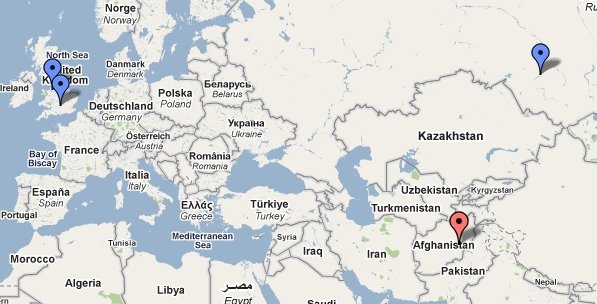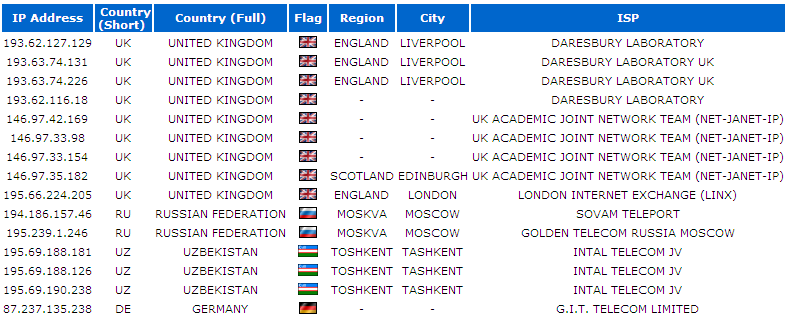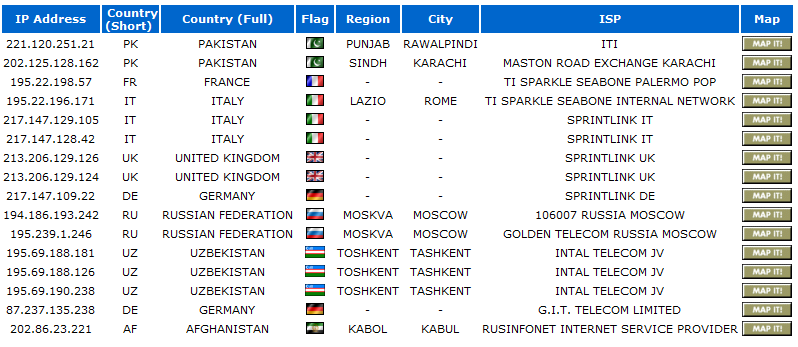TULIP Findings
Investigation on www.multinet.af lead to some very interesting findings. TULIP algorithm was used to ping the destination from our available landmarks. Though we don't have as many landmarks in Afghanistan as we would like, but the neighboring regions (particularly Pakistan) are well covered. The top three landmarks (ignoring redundancy) with minimum RTT were surprisingly in UK(2) and Russia(1) respectively.
Blue markers are selected landmarks and red ius the assumed destination www.multinet.af (kabul)
This makes us wonder about the path through which traffic flows. We did different traceroutes to to find out more.
Route from UK
Nodes used in traceroute are placed sequentially in order.
* The last node with IP 87.237.135.238 is identified in Germany though it is not the case.
Route from Novosibirsk
The important thing to note here is that the main link that connects Kabul to other regions is from Moscow, Russia.
Links between Neighbors
The interesting thing to note here is that even though we have wide coverage of landmarks in Pakistan it's relatively closer from all the other landmarks there is no direct link. A traceroute to www.multinet.af from Rawalpindi, Pakistan followed the following path. Nodes used in traceroute are placed sequentially in order. Again you can see that the route ultimately goes to Moscow.
We can see the path taken is directed from Europe instead of direct route.
Conclusion
This information above tells us that adding more infrastructure towards northern region would significantly add to the performance on network connectivity in Afghanistan. On a side note, direct links with neighboring countries can be established to make the regional traffic faster.





